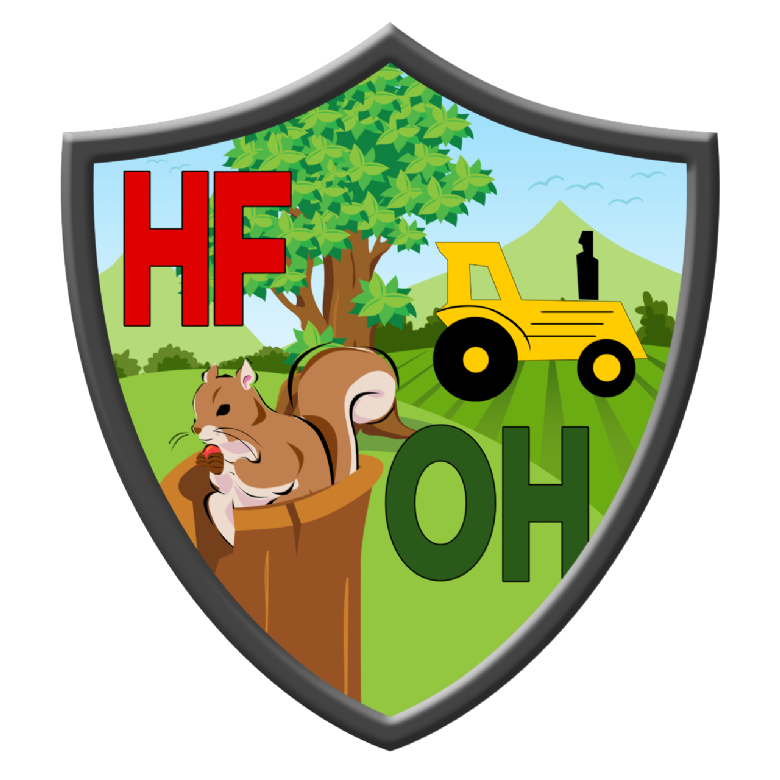English
Read Write Inc.
At Hanbury’s Farm Primary School and Oakhill Primary School we use the Read Write Inc. Phonics (RWI) programme to get children off to a flying start with their reading. RWI teaches children to read accurately and fluently with good comprehension. They learn to form each letter, spell correctly, and compose their ideas step-by-step.
Reading opens the door to learning. A child who reads a lot will become a good reader. A good reader will be able to read more challenging material. A child who can read more challenging material is a child who will learn. The more a child learns, the more he or she will want to find out.
The children are assessed regularly and grouped according to their ability. They will work with a RWI trained teacher or teaching assistant.
To find out more about Phonics at Hanbury's Farm, please click the Read, Write Inc icon on the curriculum page.
English, at Hanbury’s Farm Primary school, forms an integral part of the curriculum and has values which underpin all other subjects in the entire primary curriculum. The aim for English at Hanbury’s Farm is to promote high standards of language and literacy by equipping pupils with a strong command of the spoken and written language, and to develop their love of literature through widespread reading for enjoyment.
It is our goal that pupils will leave school with a set of skills required to read confidently and fluently and to have a broad writing skill set – being able to write imaginatively and freely in a range of styles, genres and text types. Children will have experienced and gained a coherent knowledge of many significant authors and poets, with an understanding of their writing style, audience and purpose by the time they leave KS2.
Our school follows a tailor-made programme to suit our pupils, which is designed upon the expectations outlined in the National Curriculum. Staff use progression documents to ensure skills are build-upon, in a structured way, and are developed upon in each year group (spiral curriculum). This programme is inclusive to all pupils, and can be adjusted to meet the needs of differing cohorts year upon year. In both reading and writing sessions, links to other areas of the curriculum are made, where appropriate and beneficial. Some of these include links to history topics, geography and science. For children to gain a secure understanding of grammar and the relevant terminology, in all year groups, English writing sessions embed grammar throughout with a separate grammar lesson built in each week for years 5 and 6. Children also use grammatical codes (G4W) where they will independently identify what grammar would suit a particular piece of writing and identify their use of these.
Our curriculum closely follows the aims of the National Curriculum for English 2014 to enable all children to:
- Read easily, fluently and with good understanding
- Develop the habit of reading widely and often, for both pleasure and information
- Acquire a wide vocabulary, an understanding of grammar and knowledge of linguistic conventions for reading, writing and spoken language
- Appreciate our rich and varied literary heritage
- Write clearly, accurately and coherently, adapting their language and style in and for a range of contexts, purposes and audiences
- Use discussion in order to learn; they should be able to elaborate and explain clearly their understanding and ideas
- Are competent in the arts of speaking and listening, making formal presentations, demonstrating to others and participating in debate.
Writing:
The school have adopted the Mighty Writer resource to assist with our writing in Key Stage one; this is used to enforce the key skills and embed a secure understanding of sentence structure using a visual manipulative. We believe that once children have a solid foundation and secure understanding of sentence structures, they will then be able to apply these to the specific writing genres throughout their school journey.
Throughout the school, all pupils will participate in daily writing lessons, linked to a class novel/text; within these lessons, children will have the opportunity to plan, compose, edit and polish their work. They will have the chance to learn and practise new writing skills to make this possible. We feel making links between reading and writing is vital, therefore, our daily writing sessions strongly direct our reading session focus.
Reading:
All pupils in KS2 will take part in structured daily reading sessions where they will improve their fluency, expression and intonation by reading aloud to an audience and in a variety of ways, throughout various parts of the school day and in a range of lessons. They will learn and practise reading skills such as prediction, retrieval, inference, summarising and comparison, to enable them to become skilled and confident readers with a secure understanding of the text. New vocabulary will be discussed and learnt daily, using an extensive amount of books to ensure variety. A range of books/class texts will be used, including longer novels, to improve children’s sustained reading time and reading speed. Pupils in KS2 also have access to the online reading programme ‘Reading Plus’; this is used as a reading support tool both in school (two sessions a week) and at home.
Enrichment in the English Curriculum:
Our intention is to enhance English teaching and learning across the school through enrichment days, trips, competitions and celebrations in each year group; these experiences, along with well-planned lessons are designed to promote literacy skills, enthuse and inspire, encouraging a ‘thirst for knowledge’ and a love for English.
